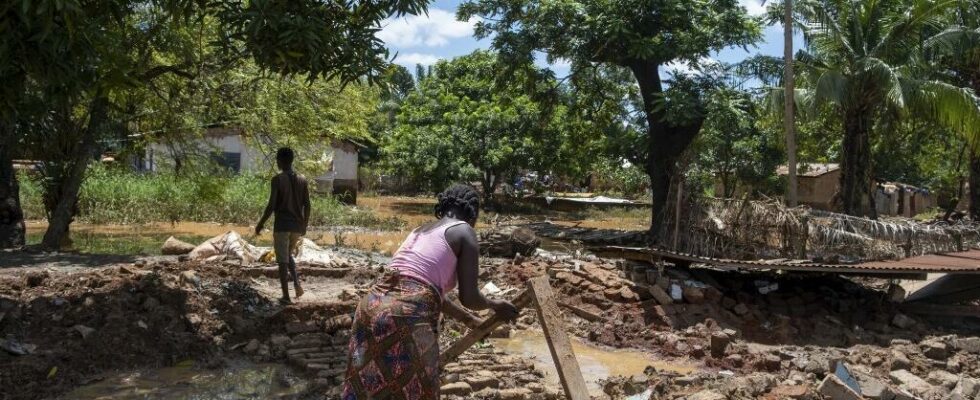In the Central African Republic, the torrential rains which fell on the capital Bangui in recent weeks have caused victims and significant material damage. These tragedies, which are unfortunately not the first of their kind, highlight the need for urgent action to limit the risk of flooding in the country.
2 mins
With our correspondent in Bangui, Rolf Steve Domia-leu
While the General Directorate of Meteorology warns of the rise of the Oubangui river, the authorities ask people to leave critical areas. Some residents have already started to leave the riverside neighborhoods or are considering doing so. In the living room of his house, Mathieu keeps his eyes glued to a map with the information published by meteorologists.
“ More and more critical »
He lives a few meters from the river Oubangui. And to protect himself from rising waters, Mathieu piles up sandbags at the entrance to his concession: “ Over the past ten days, the situation has become more and more critical. Every time it rains, the water comes dangerously close to our compound. The bricks of my house are threatening to collapse. »
In the riverside districts, such as Brussels, Petevo, Sao, Ile-des-singes or even M’poko-Bac, the rainy season is more and more devastating… Like many, Martha is on the verge of moving: “ Prevention is better than cure, they say. Our house is made of clay, it will not resist rising waters. This is why it is imperative for us to leave now to avoid material damage and loss of human life as in previous years. »
“ Find a suitable solution »
In the M’poko-Bac district, everyone is on alert. Josué Kito is one of the local figures: “ Before long, every house will be affected. My message is that we must help us to widen the evacuation channel and find an adequate solution so that the water can flow normally towards the collectors. »
THE government and its partners are preparing an emergency plan to rehouse vulnerable families on secure land before urbanizing the area.
Report AfricaCentral African Republic: they fish the sand of the Oubangui at the risk of their lives to feed their families
